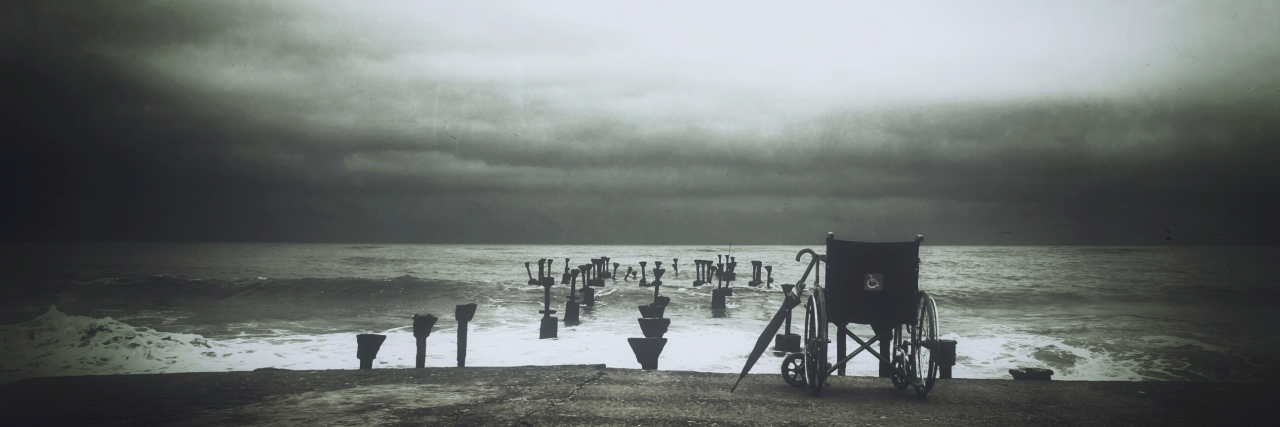5 Acts of Ableism That Need to Be Fixed
An estimated 56.7 million people in the United States have a disability they deal with every day. Google Dictionary defines ableism as “discrimination in favor of able-bodied people.” Ableism is often a part of everyday life. Instead of disability being referred as a difference, it is often assumed to be an imperfection. The sad part is, society doesn’t realize half the time that they are participating in ableist acts, simply because they do not mean any harm.
Here are five acts of ableism that need to be fixed immediately in order to help make everybody included in society.
1. Able-bodied people exploiting their privilege.
Sometimes we may not realize we are taking advantage of our privilege, but we do on a daily basis. It may not seem like a big deal, but able-bodied people don’t understand they have a certain privilege when it comes to sharing spaces with disabled people. I’m sure you have gone to a restaurant at some point in your life and have used the accessible bathroom stall, or maybe you have blocked a ramp while waiting for someone. Able-bodied people often don’t think twice about doing these things, not realizing that at any moment, somebody with a disability could need them. Meanwhile, you’re using these resources when you don’t really have the need.
2. Limited accommodations.
Many places you visit may have wheelchair stickers, signs and walkways. This is great to accommodate disabled people with walking limitations, but what about the people with other disabilities? Stop and take a second to realize that not many places offer braille menus or have servers trained in sign language. This makes it very difficult for people who experience other disabilities to enjoy being out in society. Even though there are laws set in stone to help accommodate disabled people, not many people take it seriously or they assume mobility device users make up the entire disabled population.
3. Assuming disabilities are visible.
I’m sure you’ve heard stories in the news where a person left a note on somebody’s car, lecturing them about using a disability parking permit when they appear to not be disabled. Society often assumes that when somebody parks in a disability spot, they are supposed to have a wheelchair or a cane. The truth is though, disabilities come in all shapes and sizes. Sometimes we can’t even tell somebody has a disability. That person you’re judging might have a mental illness that causes them specific limitations. Or that person may have a problem with walking occasionally, but you may have caught them on a better day. That person you just criticized for taking a while at a store to bag your items may have developmental delays you can’t see. You never know who has a disability, and it’s important not to judge a book by its cover.
4. Using words or objects that discriminate.
Ever get upset with your friend or family member for doing something silly and you just happen to use the R-word? Or maybe you don’t think somebody’s behavior is very flattering and you call them “crazy?” Maybe you automatically point out the shorter bus for students and assume they aren’t the cool kids? All of this is a form of ableism. Usually when people use these words or objects to describe negative situations, you may get a person or two calling them out for using it. Almost immediately, they generally make excuses for their word choices. This is not OK. We shouldn’t use prejudicial words describing disability as insults.
5. Fear of including.
This is a big one. Society doesn’t realize we do this on a daily basis, but it happens often. We fail to include disabled individuals in our daily lives. Most of the time, we are afraid to talk to disabled individuals too. Children in school often don’t approach disabled individuals and have a conversation, try to get to know them or invite them to their birthday parties. Adults often don’t go out of their way to befriend a disabled individual at work. Every disabled individual, whether you can see their disability or not, deserves to be included on a daily basis and not feel like an outcast. It’s important that we understand disabled individuals are people, too! They deserve the same experiences, rights and fairness as everybody else. We shouldn’t limit others when they already have to deal with limitations.
We want to hear your story. Become a Mighty contributor here.
Image provider by contributor.

